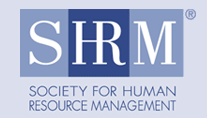The DEI Debacle: Making the Case for Thoughtfully Paced and Sequenced Exclusion
Diversity, as a commitment vs compliance undertaking, hit the Fortune 500 stage in the early 1990s. Thereafter, around 2012, Inclusion entered the scene. Between 2012 and early 2020, most companies spent much of their precious resources debating such impactful imperatives like whether the “I” should precede the “D” in D&I and how much more broadly; beyond, race, gender, age, LGTBQ, Disability, marital status, region of birth, hair color, finger nail length, preferred dog breed and favorite ice cream flavor, they could define their diversity statement; ever careful to assure all are included and no one felt left out. Meanwhile, black employees were just hoping that the DEI work could just focus, for a while, on their particular plight. Can we just stop the bleeding caused by racism in work and treat the now infected wound? Many of us simply desired to just be able to say the words “racism” or “white people” and “black people” at work without fear of reprisal.
And then, in May of 2020, everything changed.
Corporations far and wide, yanked an “E” from the sky and affixed it right next to the D and the I and cemented it all with a “Black Lives Matter” banner on their websites. Further, many hired or promoted Diversity executives with fever pitch, allocated an extra $100,000 to their DEI budgets, signed pledges to do better with their black employee population and searched high and low for consultative engagements to help advance DEI strategies. Some of these organizations were operating entirely out of fear or a perfunctory obligation to appear sincerely invested in allyship and attracting, retaining and amplifying its black talent base. Some, on the other hand, were quite earnestly and committed.
What if neither motivation matters? What if the fundamental flaw in DEI is DEI itself?
Learning Objectives:
- Hear why DEI MUST be a segmented, paced and sequenced to focus on the most marginalized and economically impactful population-black people.
- Discuss how systems, staffing, cultural norms, compensation methodology, job structures and evaluation processes should all be examined for presumed prejudice and bias and then recast with the goal of assuring greater hiring and retention.
- Learn how the browning of America and the realities around the “available” workforce after 2045 make a new “macro economic” case for racial equity in the workplace.
- Discuss why this work requires a thorough understanding of your individual, corporate and communal beliefs, already in place, about black people. It all starts with your beliefs, then behaviors, then policies.
Nikki R. Lanier, JD

Nikki Lanier is an experienced leader with over 25 years of career achievements that span Banking, Labor and Employment Law, Collective Bargaining, Human Resources, and State Government. She is an author, a sought after keynote speaker, and has received many awards and recognitions for her expertise and leadership in talent development, HR innovation, community development, DEI, and economic equity.
Nikki spent eighteen (18) years as an HR Executive and employment attorney. She has worked in more than ten (10) sectors including manufacturing, consulting, consumer goods, health care, media, law, government, higher education and banking. She has led organizations in both the public and
private sector. She has served as an HR Executive with Philip Morris USA (VA) and Georgia-Pacific Corp (GA), CHRO for Charter Schools USA (FL), Vice Chancellor of HR for Maricopa Community Colleges (AZ), and Personnel Cabinet Secretary for the Commonwealth of Kentucky (youngest and first black female appointee).
In these roles, she drove accelerated cultural change, created and implemented innovative organizational development, and focused on strategic planning, employee relations, community engagements and partnerships, training and development, succession planning, recruitment and retention, and labor negotiations.
Nikki is deeply involved in the community and has served on more than 25 nonprofit boards, commissions and civic committees. Through her work and strong local and national board memberships, she is widely recognized as an accomplished thought leader in progressive HR strategies and in advancing diversity, equity, inclusion and anti-racism, corporately and civically.
She is the current Board Chair of OneWest Community Development Corporation, Chair of the Commonwealth of Kentucky – Kerner Commission 2.0, Secretary, Treasurer and Audit Committee Chair of the Louisville Regional Airport Authority Board (4th largest Cargo airport in the world w/ $129 mil budget); a board member of Greater Louisville Inc. Chamber of Commerce (GLI), Louisville Presbyterian Theological Seminary, and two national foundations.
Nikki earned a Juris Doctor from the University of Miami School of Law, a bachelor’s degree in Journalism from Hampton University and holds a certification in Collective Bargaining from Cornell University’s School of Industrial and Labor Relations. She has served as an adjunct MBA professor for the University of Louisville College of Business since 2018, where she also serves on its Board of Advisors.
Find Sessions by Day
